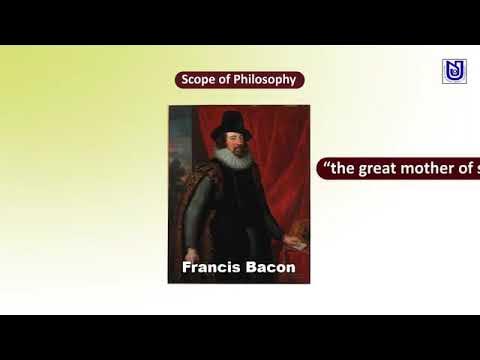Pengantar Memahami "ONTOLOGI, EPISTEMOLOGI DAN AKSIOLOGI"
Summary
TLDRIn this insightful discourse, the speaker explores the essence of philosophy as a love of wisdom, highlighting its four characteristics: critical, radical, reflective, and integral. They delve into the three primary branches of philosophy—ontology, metaphysics, and epistemology—emphasizing the significance of ethical and aesthetic values in guiding knowledge and human behavior. By integrating philosophy with scientific inquiry and daily life, the speaker underscores the importance of pursuing knowledge that is beneficial and harmonious, ultimately leading to a meaningful existence. This profound examination encourages reflection on the role of values in shaping a just and beautiful world.
Takeaways
- 📜 Philosophy is defined as the love of wisdom, requiring a systematic approach to understanding.
- 🔍 Critical thinking involves questioning appearances and seeking multiple perspectives to uncover deeper truths.
- 🌱 Radical inquiry seeks to explore fundamental aspects of existence and knowledge down to their roots.
- 🤔 Reflective contemplation encourages thoughtful consideration before making conclusions or judgments.
- 🔗 An integral approach means drawing from diverse perspectives to achieve a holistic understanding of truth.
- 🌌 Ontology examines the nature of being and existence, asking what entities truly are.
- 📚 Epistemology investigates the sources and validity of knowledge, focusing on how we acquire and prove truth.
- ⚖️ Axiology explores values, dividing into ethics (moral values) and aesthetics (concepts of beauty).
- 🧠 Knowledge should always be accompanied by ethical considerations to ensure it benefits humanity.
- 🌍 Philosophy guides individuals towards wisdom, encouraging ethical living and harmony in human relationships.
Q & A
What is the definition of philosophy as mentioned in the script?
-Philosophy is defined as the love of wisdom, aimed at seeking knowledge and understanding through a systematic approach.
What are the four key elements of philosophy?
-The four key elements of philosophy are critical, radical, reflective, and integral.
How does the script define the term 'critical' in the context of philosophy?
-Critical means questioning assumptions and seeking multiple perspectives rather than accepting appearances at face value.
What does the term 'radical' signify in philosophical inquiry?
-Radical signifies the effort to uncover truths down to their roots, seeking deep understanding and clarity in knowledge.
What is the purpose of being reflective in philosophical thought?
-Being reflective involves contemplating information before reaching conclusions, allowing for thoughtful processing and better understanding.
What does the integral aspect of philosophy encompass?
-The integral aspect involves examining knowledge from various angles and not limiting oneself to a single perspective in the search for truth.
What are the two main branches of ontology discussed in the script?
-The two main branches of ontology discussed are ontological studies of existence and metaphysics.
What is the difference between epistemology and metaphysics?
-Epistemology focuses on the nature and sources of knowledge, while metaphysics deals with questions about existence, God, and the universe.
What are the three theories of truth mentioned in the script?
-The three theories of truth are coherence theory, correspondence theory, and pragmatic theory.
How does value theory (axiology) relate to philosophy?
-Value theory examines the nature of values, specifically focusing on ethics (moral values) and aesthetics (values of beauty), which are essential for guiding human behavior and knowledge.
Outlines

此内容仅限付费用户访问。 请升级后访问。
立即升级Mindmap

此内容仅限付费用户访问。 请升级后访问。
立即升级Keywords

此内容仅限付费用户访问。 请升级后访问。
立即升级Highlights

此内容仅限付费用户访问。 请升级后访问。
立即升级Transcripts

此内容仅限付费用户访问。 请升级后访问。
立即升级5.0 / 5 (0 votes)






